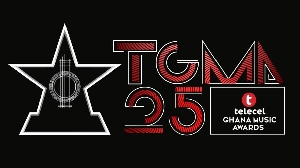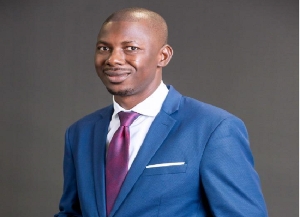Regional News of Saturday, 22 November 2014
Source: GNA
Journalists urged to be self-regulatory
Mr Bernard Otabil, General Manager of Ghana News Agency, on Friday encouraged journalists to be self-regulating as well as abiding by their code of ethics to enhance the profession.
He said the law is not an antidote for professional errors that keep running in the media airwaves.
Speaking at the just-ended National Conference on “Broadcasting Pluralism; Press freedom and democratic Governance in Ghana”, Mr Otabil said “journalists should not wait for bills to be introduced before they conform to ethics and professionalism”.
The three-day conference was organised by Ghana Institute for Public Policy GIPPO) with sponsorship from STAR-Ghana, a multi-donor pooled agency, to review developments in Ghana’s Media for the last 20 years and the way forward.
The event was also to celebrate the 20th anniversary of the Independent Radio EYE, which broke the state’s monopoly of the air waves in 1994 and became the first independent broadcasting outlet in Ghana.
Mr Otabil said the neglect of professional standards and ethics has become a major threat to press freedom in Ghana.
This, he said, has resulted to loss of public sympathy and support for journalists, and mistrust for the media as the society’s ally in the pursuit of social justice and all-inclusive development.
“Indeed, many are those who would cite unprofessional conduct on the part of journalists as a justification each time a journalist is brought before the law or comes under physical attack.
“There is the need, therefore, to rein in that tendency for extremism/excesses in the journalism profession, especially when unprofessional conduct is being used as a pretext to drag journalists to court in order to cow down courageous journalism,” he added.
Mr Otabil noted that the prevailing situation brings to the fore the imperative need to focus the attention of practitioners on media ethics, policies and initiatives that would enhance their sense of professionalism.
He said the traditional mandate of the media as the eyes and ears of the society and the enablers of the most essential requirements for society’s development – information flow between the government and the governed, as well as among the citizenry, and serving as a watchdog of society by holding public officials accountable are still relevant.
“Besides, journalism practice survives on public goodwill which is earned and sustained through adherence to best practices and the observance of the principles of responsible journalism,” he said.
He therefore called on stakeholders including the National Media Commission, National Communications Authority, Ghana Journalists Association (GJA), Ghana Independent Broadcasters Association, Private Newspapers Association of Ghana, the various media organisations and journalists to work at winning back the confidence and trust of the public by according due regard to their professional ethics.
He also called for consistent training and capacity-building for both media owners and journalists to enhance professionalism and cohesion.
“Media organisations should ensure that their journalists are well grounded on the GJA code of ethics, as well as the Constitutional provisions that concern the media,” he said.
Ms Estelle Appiah, former Director of the Legislative Drafting Division of the Attorney-General’s Department of the Ministry of Justice, said any bill on broadcasting must be drafted in a way that would not put hindrance on the old laws.
“It should provide a clear and easy formula for non- compliance; its preparation should not be rushed and must be made participatory.
“Journalists and media operators who are the users must show keen interest in the law and participate actively to ensure that the bill becomes an enforceable law,” she added.
Ms Appiah noted that the broadcasting law must be implementable if it should have any effect on the air waves in Ghana.
Ms Kina Likimani, a Blogger expressed the need for journalists to be trained on how to use social media to blend their content and to be more ethically sound about the social media platform.
She said some journalists only circulate rumours on social media and thereby deceive other people on the platform.
Dr Charles Wereko-Brobby, Chief Policy Analyst, GIPPO and the convener of the conference said the event was very resourceful and educative and commended participants for their efforts and zeal.
He said journalism had to be exciting though it should be true and accurate.











